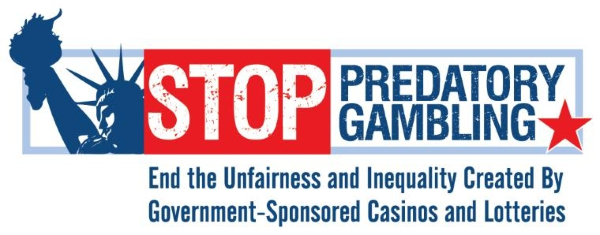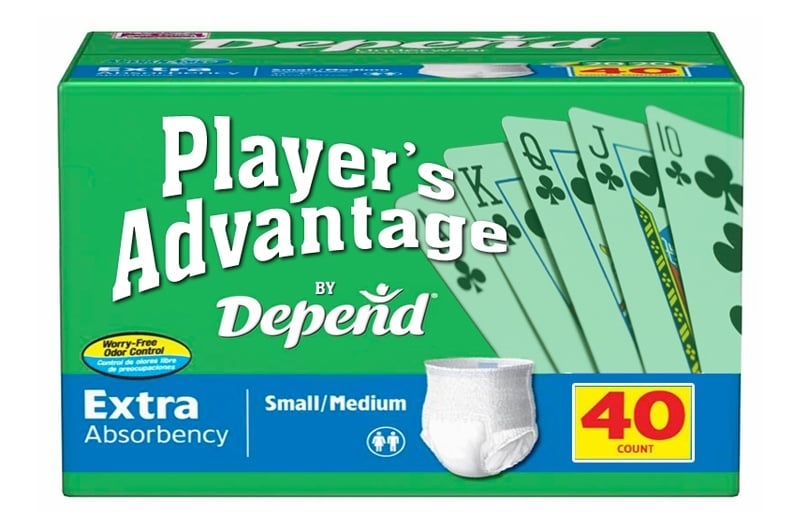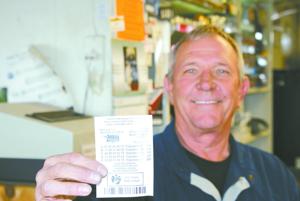Compulsive Gambling - A soul-sapping addiction
By Mira Brody January 23, 2015 12:00 am
“Can’t cope no more, I’ve had enough.”
“I really need help trusting the addict in my life.”
“Today I am not going to gamble and have a stress free day hope you can all do the same.”
“On day one again and feeling ashamed.”
“Can’t sleep been thinking about the money I lost yesterday, and the things that I could of done differently.”
“Watching the news and commercials for all three casinos in ugly devastating Detroit. I'm still sick and absolutely terrified. Last thing I want to see.”
These are just a handful of the comments posted by those who are members of the Facebook page “Gambler’s Addiction Support Site.” Fran Russell, the page administrator who created the site just over a year ago, gets nearly 25 new members a week for a current total of 777 members. They are students, parents, teenagers and middle-aged people who have spent years building their lives only to gamble it away. They are both active gamblers and gamblers in recovery, as well as family members seeking advice on how to cope with an addict in their life.
Time and time again the community is told there are no significant impacts brought on by the massive Graton Resort & Casino that opened Nov 5, 2014, on the outskirts of Rohnert Park. Graton joined the gambling landscape long occupied by River Rock Casino in Geyserville, the Casino 101 card room in Petaluma or the casino in Hopland.
Unfortunately, there’s a reason gambling addition is referred to as the silent addiction. The impacts of casinos don’t reverberate and often only affect those in immediate contact with an addict. When someone is addicted to a substance, it is usually visible by deteriorating heath or by their actions. The substance is a physical object. Gambling however, is usually marked by things that are not present: the person, missing for hours at a time; the money they spend; the estranged family members; and the bills that aren’t paid.
“They’re painting this beautiful picture of the casino because it makes money,” Russell says. “I haven’t seen any nonprofit groups come out of this. They’re supposed to benefit domestic violence, education. Nothing!”
One member hasn’t been to the dentist in five years. Another has overdrawn her account by the thousands. Others have lost the trust of their significant others or custody of their children. Some are even on the verge of suicide. Some have already committed suicide. Among the messages of desperation and depression however, are also comments of hope, encouragement and the sharing of resources that have been proven to help. The community, which is made up of those affected by a difficult disease, is resoundingly compassionate and often truly wants to seek and give help.
Tired of fighting a city that was so set on building a casino a stone’s throw from city limits, Russell was inspired to start the online support group from an experience years ago when she fostered two young boys who were displaced by their parent’s incessant addiction. Their infant brother had died of hypothermia in the back of the parent’s car; the kids had been waiting for them in the parking lot to return from gambling.
“How do you tell a 4-year-old it is not their fault, that it’s mommy and daddy’s?” she says of tying to comfort the two boys, grief-stricken over the death of their brother. The children were eventually returned to their parents, and she has no idea of their current whereabouts.
Problem gambling is defined as continuing to gamble despite negative impacts, and the brain activity experienced in a compulsive gambler is identical to that of a cocaine addict. According to a 2012 California study, 65.4 percent of all gambling is preformed in Indian casinos, and the majority of problem gamblers are between the ages of 25-35. The average debt per person is $19,272, and of those who reported, the state total is about $30 million of gambling-related debt.
For most in the community, seeing a billboard or commercial about the Graton Casino does nothing but provide either moot information or a vague musing about what they might do later or that weekend. For those suffering from a gambling addiction, however, it can be a trigger, one that can erase mountainous amounts of hard work and rehabilitation.
“Membership has gone up since the casino has opened, but it’s not as significant as we thought,” said Denny, the current chairmen of Rohnert Park’s Gambler’s Anonyms meetings at St John’s Methodist Church. “They will sooner or later when they reach their bottom, but the problem is that the bottom sometimes isn’t until very low. If they want to get cured, they will. You have to come in with the idea of wanting to stop.”
Gambler’s Anonymous is a 12-step program offered to those seeking help for their addiction. Denny notes that it is easy for people to pick up a pamphlet and toss it out, so he encourages anyone who has the intent on recovery to come to a meeting, held every Monday at 7:30 p.m. Although it is a closed meeting, first-timers who have accepted their addiction and are motivated toward recovery are accepted.
“To be truthful, I don’t see any disturbing parts of the casino,” he adds, noting that it sometimes takes years for people to seek help or even recognize that they have a problem. “I think there’s going to be more eventually but not right now.”
The numerous highway billboards and commercials paint a picture of Las Vegas extravagance when entering a casino, and the interior of Graton is quite impressive. The real picture of addiction, however, is a bit more gruesome. Slot machine players, for example, are fearful of leaving a slot they’ve been playing for a while, sometimes more than 24 hours. Many choose to wear diapers, refusing to use the building’s facilities.
Addicts have the option of participating in self exclusion, where they voluntarily ban themselves from a chosen casino. It requires some paperwork and is often proved ineffective. Ideally, the self-excluded person will be recognized and removed from the building. If they gamble and win, their winnings are supposed to be handed over to an account that will benefit non-profit addiction programs. An employee at Graton, who wished to remain anonymous, admitted this practice is rarely enforced.
“In order for people to join this group, you have to push that button,” Russell says of her Facebook page. She does moderate the conversations, keeping them civil and upholding certain regulations.
Members, for example, are not allowed to mention dollar amounts lost or won. There’s also a large amount of spam that needs to be filtered out as many businesses that feed off of people with gambling addictions will try and usher members to play online poker or apply for phony debt relief.
If members reach out to Russell, even if they are halfway across the country, she finds a counselor or meeting in their area to help. There is help, not only on Russell’s Facebook support group, but also at local Gambler’s Anonymous meetings. Another resource for information and advice for those affected by gambling is
www.gamblersanonymous.org.
As with any addiction, gambling is often uncontrollable and regularly ruins lives. The consequences of a business are not always shown in annual statistics but rather in the stories of those suffering quietly. The Graton Casino may have put Rohnert Park “on the map” but it has also may be the cause of many individuals straying from their own path.
 During a meeting of the Carle Place Civic Association on Jan. 21, 2015, people stand in opposition to the proposed building of an OTB gaming parlor at the vacant Fortunoff site in Westbury. Photo Credit: Newsday / Thomas A. Ferrara
During a meeting of the Carle Place Civic Association on Jan. 21, 2015, people stand in opposition to the proposed building of an OTB gaming parlor at the vacant Fortunoff site in Westbury. Photo Credit: Newsday / Thomas A. Ferrara 




















